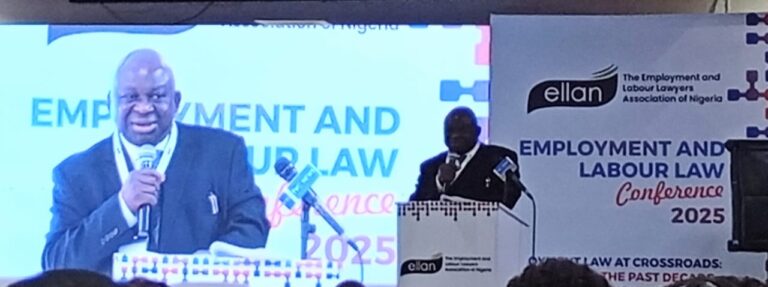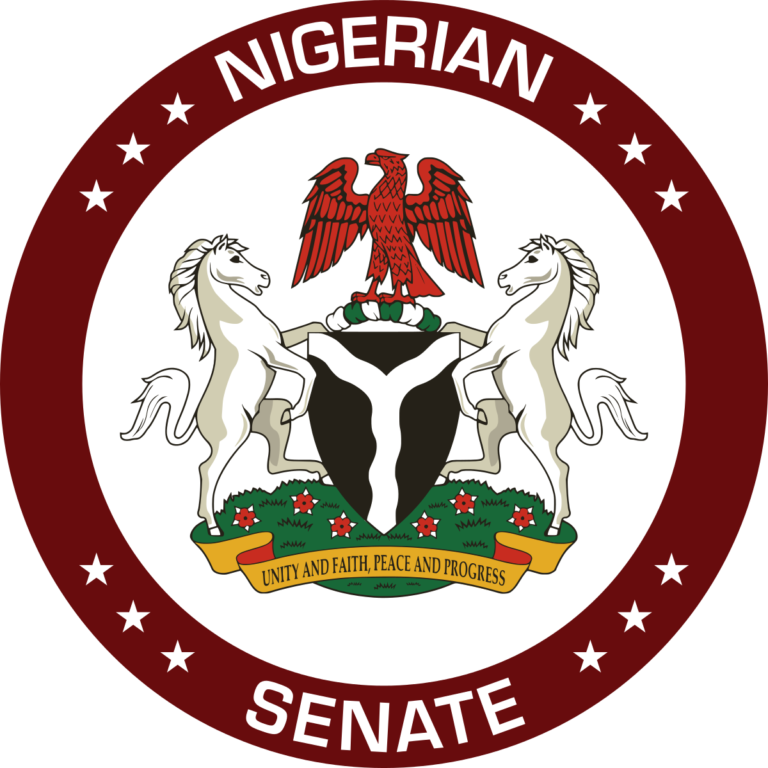
By Fatima Saka
…305 memoranda and 112 bills received – Kalu
…identifies local government autonomy, judiciary, electoral issues, state police, gender, human rights, and other key areas
…as House Committee commences the review of bills and memoranda
…Akwa Ibom government and State
Speakers support State Police, resource control, and decentralization of power
Senate President, Senator Godswill Akpabio, stated on Friday that the 10th National Assembly will draft a constitution that reflects the collective aspirations of Nigerians, aiming to shape, unite, and accelerate the nation’s development.
Akpabio made this declaration while delivering his speech at the start of a 2-day retreat organized by the Policy and Legal Advocacy Center (PLAC) and the United Kingdom International Development in Ikot Expene, Akwa Ibom State, for the House of Representatives committee tasked with reviewing the 1999 Nigerian constitution.
The Senate President urged federal lawmakers to be meticulous in their current review of the constitution, emphasizing the importance of thorough consideration for each bill and proposal.
This announcement coincided with the revelation by the Deputy Speaker of the House of Representatives and Chairman of the Committee on Constitutional Review, Rt. Hon. Benjamin Okezie Kalu, that the Committee is currently evaluating 305 proposals and 112 bills submitted by Nigerians on various national issues for inclusion in the review of the 1999 Constitution.
Additionally, the 36 State Speakers of the Houses of Assembly and the Akwa Ibom State government expressed their support for the establishment of state police, resource control, and decentralization of power, among other national issues.
Applauding the efforts of the House committee, Akpabio emphasized the need for Nigerians to take charge of their future.
He stated: “I am confident that the Senate and the House of Representatives will establish a framework that guides us towards a more unified and prosperous Nigeria. This journey has just begun at this retreat. Therefore, the challenges ahead are significant, but so are the opportunities. Our task is to ensure that all bills we consider are fair and reflective of the aspirations of the Nigerian people. By incorporating diverse perspectives and experiences, we establish a solid foundation for a constitution that genuinely represents the hopes and dreams of every Nigerian.
“Esteemed colleagues, now is the time for us to seize our destiny. Change will not come if we passively wait for others or for different circumstances to take action. We have the power to bring about the change ourselves and redefine the course of our nation. We are the change our country needs.
“Let us rise to this responsibility and heed our country’s call, especially at a time when we have a Vice President, a President, and even the President’s wife serving as legislators. Now is the opportune moment for us to shape the future of our nation through legislation.”
In his address at the retreat, Deputy Speaker Kalu outlined the priority areas in the review process.
These areas include local government autonomy, judiciary, electoral issues, state police, gender, human rights, and others.
Kalu explained that these thematic areas have been distributed among experts for analysis.
The committee has conducted various public engagements, from the pre-inaugural meeting to the establishment of sub-committees for work plan development, and has set a timeline to achieve the first set of amendments by December 2025.
Expanding on the thematic areas, Kalu mentioned the consultants assigned to delve into each topic.
He specified that local government matters are entrusted to Professor Nuhu M. Jamo, the judiciary to Barr. Mike M. Osuman (SAN), electoral issues to Hon. (Dr.) Samson Osagie, state policing to Dr. Usman Ibrahim, gender issues to Prof. Anthonia T. Simbine, human rights issues to Chief Chris Uche (SAN), and other special matters to Professor Yusuf M. Yusuf.
Kalu stressed that constitutional amendments are crucial to align with the desires of Nigerians and to adapt to current economic realities.
He emphasized: “The Constitutional amendments are essential for achieving improved economic outcomes by modernizing legal frameworks, enhancing institutional capacity, maximizing Nigeria’s economic potential, addressing emerging economic challenges, and promoting inclusive development.
Constitutional amendments are necessary for several reasons, including the need to adjust to evolving economic circumstances, strengthen property rights and the rule of law, encourage economic freedom and fair competition, ensure fiscal responsibility and budgetary discipline, enhance governance and accountability, empower local governments, and facilitate structural reforms.”
In line with the commitment to consult extensively, the Committee plans to engage various sectors and experts on the identified thematic areas to ensure a comprehensive review of the bills and memos received.
The Governor of Akwa Ibom State, Pastor Umo Eno, represented by Deputy Governor Senator Akon Eyakenyi, expressed support for the establishment of state police and advocated for devolution of powers, among other issues.
The Chairman of the Conference of Speakers of State Legislatures of Nigeria and Speaker of the Oyo State House of Assembly, Rt. Hon. Adebo Ogundoyin, highlighted the conference’s interest in state police, local government autonomy, resource control, revenue allocation, and devolution of powers to the states.
Ogundoyin affirmed: “There are critical national issues that must be reviewed for constitutional amendments, such as state police, local government autonomy, resource control, revenue allocation, centralization of powers versus devolution of powers to the states, and other pressing matters. The conference strongly supports the establishment of State Police and other amendments that promote Federalism.”
The retreat, the first for the House Committee, aims to receive reports from experts/consultants on the appraisal of previous constitution amendment bills, discuss the bills and memoranda received, and introduce new areas for consideration.


